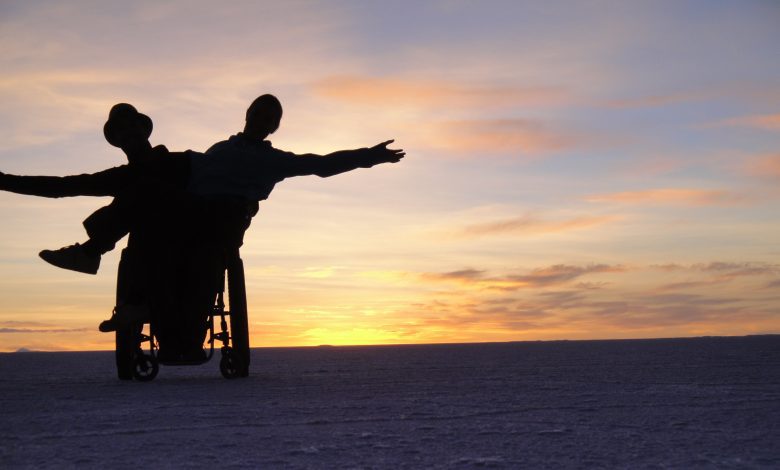
Social Model of Leadership: why disabled people are the leaders of tomorrow
The Social Model of Leadership (SML) aims to empower people with disabilities and highlight how valuable our unique viewpoints are. The model was developed by people living with disabilities and long-term health conditions who share a vision of disabled people’s empowerment, positive role models and leadership contributions.
What is the Social Model of Leadership?
The Social Model of Leadership is fundamentally built on the belief that living with a disability actually gives people a distinctive empowerment and leadership advantage.
The SML requires society to acknowledge and value people living with disabilities as empowered leaders. It promotes our contributions to society and encourages diversity and inclusive best practice.
Significantly the SML encourages society and employers to re-examine and review their viewpoints of and attitudes towards people living with disabilities.
The SML was started by Danny West, a leadership trainer and coach, and includes contributions from a diverse range of people living with disabilities and long-term health conditions, including Shaama Saggar-Malik, a highly-skilled development consultant who has more than 25 years’ experience of promoting diversity.
Why disabled people are influential
As people with disabilities, we believe that we can be empowered influential leaders who bring authenticity, integrity, uniqueness and added value to our families, communities, leadership positions, workplaces and society.
The SML recognises that people living with disabilities have a significant range of viewpoints, skills and competencies that are a result of our daily living and our experience of the barriers and challenges..
This model recognises that those of us who want to be self-empowered or occupy and aspire to be in leadership positions are likely to be more resourceful, determined and resilient. Our survival and success is often dependent on our ability to develop, practice and demonstrate these honed skills throughout our lives and within employment.
The SML recognises that disabled people are likely to have developed many core empowerment and leadership skills. These include empathy, emotional intelligence, communication, planning and strategising and rapport building. Additionally, we have an appreciation and awareness of our own strengths and weaknesses and continuing professional development needs.
SML believes that disabled people have developed a range of strategies for overcoming the problems associated with discrimination and stigma, and the medical and charitable models of disability perpetuated by society.
As leaders living with disabilities, we are extremely diverse and we often share a more inclusive perception of society and the environments in which we lead our lives. We we have a more insightful understanding of the impact of exclusion; as disabled leaders we understand and are able to practically relate to prejudice, discrimination and the challenges of life and daily living.
The SML stresses that disabled people have the human right to be valued and recognised. We have a right to be given fair, just and appropriate encouragement and support to participate as leaders in society on an equal basis.
When we do so, then society as a whole benefits from our talents, knowledge, skills and unique contributions.
How can the Social Model of Disability enable disabled people?
The SML will challenge and readdress societal limited expectations, stereotyped and prejudiced viewpoints about our abilities and capabilities as leaders and employees.
The model will act as a catalyst of change. It will promote the leadership of people living with disabilities and the many advantages for employing people with disabilities.
This innovation has the potential to increase positive leadership role models amongst people with disabilities and provide us with opportunities to demonstrate our impact.
How can disabled people bring the Social Model of Leadership into their lives?
We encourage people living with disabilities to share the SML with employers and organisations for disabled people and to encourage them to work in partnership with the innovators of this model to further develop and enhance the SML.
It will take time to increase awareness of the SML within society and, like all innovations, we will constantly look to further enhance the SML.
We also invite people living with disabilities and organisations for disabled people to contribute to the SML by sharing their experiences and examples of how a disability has enabled them to hone and develop skills and capabilities.
Disabled people are not special; we are people with a different experiences and challenges. Because of this we are able to offer a different point of view and perspective. We can bring authentic inspiration to leadership. We do not want to be recognised from a patronising and or ‘hero model’ perspective, but from an ideology that is focused on our ability to achieve, contribute and lead.
By Danny West, edited by Shannon Kelly
Danny West is a leadership trainer and coach and lives with a disability, dyslexia and HIV. He works across a wide range of organisations within the public, corporate and third sectors. Find out more about Danny on his website: www.dannywest.co.uk
Get in touch by messaging us on Facebook, tweeting us @DHorizons, emailing us at editor@disabilityhorizons.com or leaving your comments below.
I went on this course Martyn…